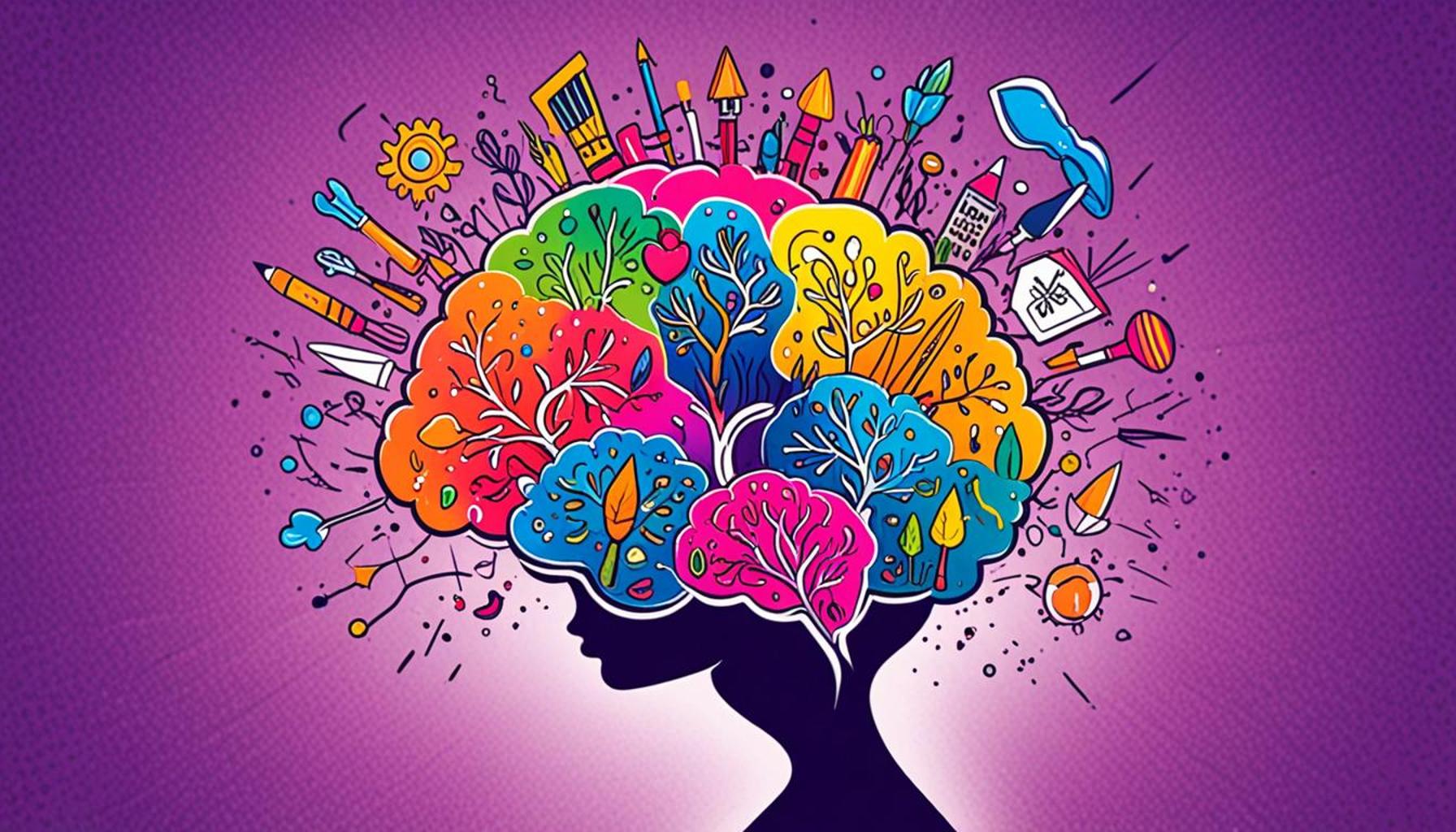The Importance of Resilience: How a Growth Mindset Helps to Face Challenges and Grow from Them

The Importance of Resilience Amidst Challenges
In the face of life’s unpredictable challenges, from personal setbacks to larger societal hurdles, many individuals throughout Nigeria illustrate the importance of resilience. This trait becomes particularly evident during times of economic shifts, such as inflation or job scarcity, as well as during health crises like the COVID-19 pandemic. The ability to bounce back from adversity—known as resilience—is not just vital for individual success but also pivotal for the overall progression of communities.
Central to building resilience is the adoption of a growth mindset. This powerful perspective reframes challenges, allowing individuals to see these obstacles as opportunities for personal development rather than insurmountable barriers. For instance, a student struggling with a difficult subject can view their initial failures not as reasons to give up but as a platform from which to acquire greater understanding and skill. This mindset shift can transform the educational landscape, encouraging students to embrace learning as a continuous journey rather than a destination.
- Adaptability: The ability to adjust one’s approach when faced with unexpected circumstances is critical. For instance, farmers in Nigeria may have to adapt to changing weather patterns, investing in new techniques or crops to sustain their livelihoods.
- Persistence: The determination to pursue goals despite facing setbacks is a hallmark of resilience. Entrepreneurs in Nigeria who face financial difficulties often share stories about their persistence, illustrating how they learned from failures to ultimately achieve success in their ventures.
- Learning: Resilient individuals focus on extracting valuable lessons from every experience, whether positive or negative. This learning mindset not only helps individuals grow personally but also inspires entire communities to adopt innovative practices in business and education.
In a dynamic and often unpredictable society like Nigeria, these qualities of resilience are not just important for personal achievement but also for nurturing communal strength. The intertwining of individual resilience with collective empowerment allows communities to rise and thrive despite adversities, leading to a more robust and united society.
This article delves into the profound significance of resilience, illustrating how a growth mindset can empower individuals to tackle challenges head-on. Furthermore, we will discuss effective strategies for cultivating resilience, equipping readers with the tools needed for personal and community development. Understanding and embracing these principles will facilitate greater achievements in our ever-evolving environment, helping us to not only survive but flourish amidst challenges.
LEARN MORE: This related article may interest you

Navigating Life’s Trials with a Growth Mindset
The concept of a growth mindset, popularized by psychologist Carol Dweck, posits that individuals who believe their abilities can be developed through dedication and hard work tend to achieve more than those who see their talents as fixed traits. This mindset is particularly crucial in a country like Nigeria, where socio-economic challenges can create a complex landscape filled with obstacles. By cultivating a growth mindset, individuals can transform their perception of failure and adversity, leveraging these experiences as springboards for personal and professional growth.
In Nigeria, where many face the daily realities of economic fluctuations and social issues, the application of a growth mindset is vital. For example, consider the resilience displayed by small business owners who are challenged by market changes. Many entrepreneurs have encountered significant setbacks due to economic downturns, but those who adopt a growth mindset utilize these challenges to innovate and adapt. They may pivot their business models or explore new markets, demonstrating how resilience is intricately linked with the ability to learn and grow from experiences.
Moreover, fostering a growth mindset encourages individuals to see their shortcomings as opportunities to learn rather than as failures. For instance, students in Nigeria observing their peers excel academically may initially feel discouraged. Still, those who adopt a growth mindset will focus on understanding the subjects better and seek help or resources to improve. This approach leads to a more engaging learning process and ensures that students become better equipped to handle future academic and life challenges.
- Embracing Challenges: A growth mindset encourages individuals to embrace challenges as a necessary part of the learning process. This perspective helps reduce anxiety surrounding failures, promoting a more positive attitude towards facing difficulties.
- Enhancing Problem-Solving Skills: By approaching problems with curiosity rather than fear, people develop critical thinking skills that are essential not only in academics but also in daily life and professional environments.
- Building Resilience: Regularly confronting challenges gradually builds emotional strength and resilience. As individuals navigate their struggles, they become better prepared for higher levels of adversity in the future.
Through the lens of resilience and a growth mindset, one can find clarity amidst confusion. Today’s Nigerian youth are increasingly encouraged to think beyond conventional limits, engaging with their challenges instead of shying away from them. Whether in educational institutions, workplaces, or community projects, the ability to adapt and grow in response to challenges nurtures resilience at all levels of society.
In the forthcoming sections, we will explore specific strategies to cultivate resilience through a growth mindset. These techniques will empower individuals not only to navigate their personal challenges but also to inspire those around them to foster a supportive environment for mutual growth and development.
| Advantages | Description |
|---|---|
| Enhanced Adaptability | A growth mindset fosters the ability to adjust to new circumstances and learning opportunities. |
| Increased Persistence | Embracing challenges as growth opportunities enhances determination and task completion. |
Understanding resilience through the lens of a growth mindset highlights the profound impact of our beliefs on our response to challenges. An individual with a growth mindset perceives difficulties not as insurmountable obstacles but as opportunities to develop new skills and insights. This perspective significantly enhances adaptability, allowing for smoother transitions in ever-changing environments, be it in professional or personal life.Furthermore, the value of a growth mindset lies in the persistence it cultivates. Those who embody this mindset are more likely to face setbacks head-on and view them as a critical part of the learning process. This characteristic becomes invaluable in various contexts, illustrating the importance of resilience not just as a trait but as a systematic approach to life’s unpredictability. By embracing challenges with this attitude, individuals can unlock their potential and foster significant personal growth.
RECOMMENDED: Check out this similar article
Strategies for Cultivating Resilience Through a Growth Mindset
To effectively harness the power of a growth mindset, individuals must actively engage in practices that cultivate resilience. Several practical strategies can be implemented to develop this essential skill, especially in the face of Nigeria’s multifaceted challenges.
First, it is crucial to develop self-awareness. Individuals must understand their own thoughts, emotions, and behaviors in response to challenges. By recognizing negative thought patterns, such as self-doubt or fear of failure, people can work to replace them with more empowering beliefs. For example, when faced with a job loss or a failed business venture, an individual who adopts a growth mindset will reflect on the lessons learned, gaining insights into what strategies might work better next time. This self-reflective process can help convert setbacks into opportunities for growth.
Another vital strategy is to set realistic and achievable goals. When individuals establish clear and attainable objectives, they can track their progress and celebrate small victories along the way. This practice not only boosts confidence but also reinforces the belief that effort will lead to improvement. For instance, a young entrepreneur in Nigeria looking to expand their start-up might set incremental monthly sales targets. Achieving these goals instills a sense of accomplishment and encourages them to tackle future challenges with enthusiasm.
- Surrounding Yourself with Positivity: Engaging with a supportive community can significantly enhance resilience. Surrounding oneself with positive, like-minded individuals can provide encouragement and motivation, which is especially important in challenging times.
- Fostering a Love for Learning: Cultivating curiosity and a desire to learn can lead to greater adaptability. This can mean participating in workshops or online courses, which not only enhance skills but also expose individuals to new perspectives and problem-solving approaches.
- Practicing Mindfulness: Techniques such as meditation or mindfulness can help individuals become more grounded and less reactive to stress. This calmness enables better decision-making during crises, fostering a clearer understanding of the situation at hand.
Through these strategies, individuals can begin to reshape their narratives around failure. For instance, a Nigerian student who faces academic challenges might initially view poor grades as a reflection of their intelligence. However, by implementing a growth mindset, they could reframe this experience as a prompt to seek extra help or adopt new study techniques, ultimately leading to improved performance.
Additionally, leveraging local resources, such as mentorship programs and community support groups, plays a crucial role in nurturing resilience. Interactions with mentors who have faced similar challenges can provide invaluable insights and encourage individuals to persevere. For example, numerous organizations across Nigeria foster mentorship opportunities, linking experienced professionals with young graduates eager to overcome the daunting reality of job searching in an increasingly competitive landscape.
Lastly, developing a sense of gratitude can also enhance resilience. By focusing on positive aspects of life and recognizing one’s strengths and achievements, individuals can cultivate a more optimistic outlook. This shift in perspective allows one to appreciate the journey, regardless of the hardships faced, while motivating them to continue pushing forward despite difficulties.
As resilience becomes increasingly vital in navigating the complexities of modern life in Nigeria, integrating these strategies into daily practices will enhance both personal growth and the ability to support others. This collective resilience fosters a stronger societal fabric, better equipped to face future challenges.
CHECK OUT: Click here to explore more
Conclusion
In conclusion, the importance of resilience cannot be overstated, especially in the context of Nigeria’s ever-evolving landscape. The ability to navigate challenges and emerge stronger is not merely a reaction to adversity; it is a vital skill that can be cultivated through a growth mindset. By embracing the principles outlined in this article, individuals can transform setbacks into stepping stones for personal development and success.
As we foster self-awareness, set achievable goals, and surround ourselves with supportive communities, we empower ourselves and each other. These strategies promote a positive outlook, encouraging us to view challenges not as roadblocks, but as opportunities for growth. Furthermore, embracing lifelong learning and mindfulness helps us adapt to the challenges we face with greater confidence and clarity.
Moreover, understanding that resilience is a collective endeavor enhances our ability to support one another within communities. Mentorship programs and local initiatives provide invaluable assistance, uniting individuals in their quest for personal and shared advancement. In this way, resilience becomes a communal strength, enabling us to face obstacles together and building a robust societal framework.
As we navigate the complexities of life, let us remember that resilience is not an inherent trait; it is a skill that can be developed over time. By prioritizing a growth mindset, individuals can not only overcome their challenges but also inspire those around them to do the same, ultimately contributing to a stronger, more resilient Nigeria where everyone can thrive.


